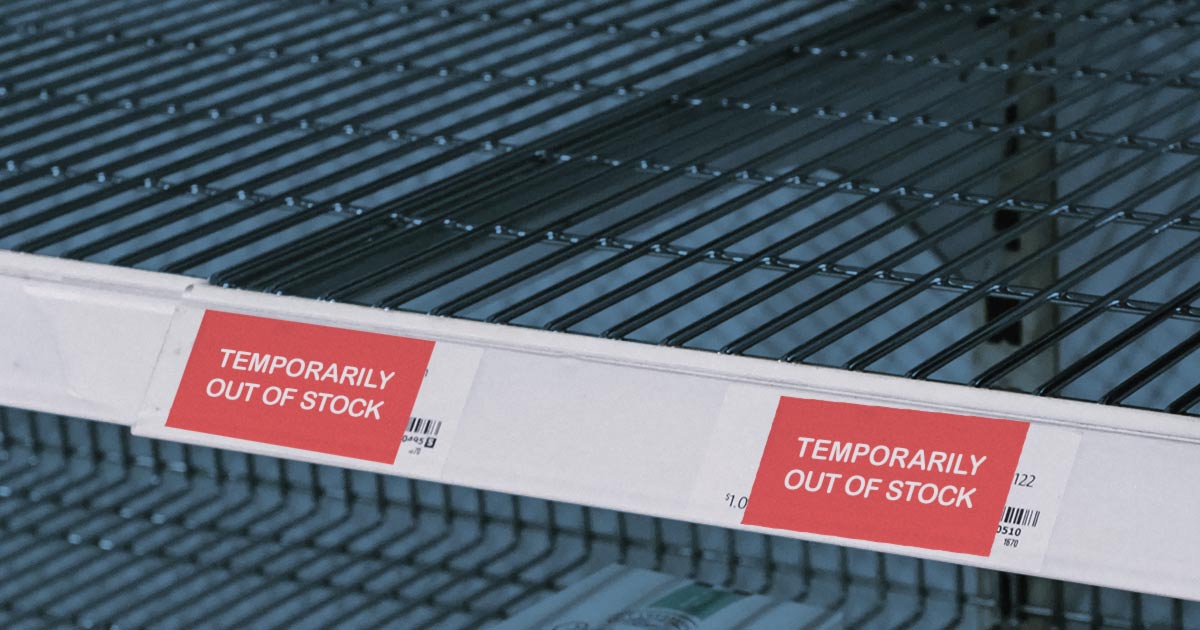[3-minute read]
As ecommerce businesses in the UK prepare for Black Friday and the holiday shopping season, consumers face shortages at petrol stations, on shopping shelves, and in stores. Many consumers have turned to online shopping to avoid queues and stock shortages. They also think twice about getting in their cars to cut down on fuel consumption. With an all-time high in demand due to consumers wanting to spend their stimulus money, businesses are missing out on much-needed recovery after lockdowns and the effects of the global pandemic.
Pointing fingers
On top of these challenging conditions, Brexit has caused labour shortages in the UK. Foreign labourers can no longer fill certain positions in the food, clothing, and warehousing industries. The result is a supply chain that does not supply. Products delivered to warehouses can’t be packed and distributed. Everybody is blaming everybody else. It doesn’t matter who blames whom, the shelves are empty, and businesses are losing millions of pounds because of it.
Additionally, there’s a shortage of cold storage space due to Covid-19 vaccines taking priority over other cold-chain-reliant products. Manufacturers have pivoted from a ‘just-in-time’ delivery philosophy to stockpiling. There is a backlog at various ports where Brexit red tape complicates imports and exports. Global microchip manufacturers can’t cope with global demand hampering the production of electronic products, which has drastically impacted the car production industry, for one.
We’re in the eye of a perfect storm.
What should you do if you run an ecommerce business to ensure your supply chains are running smoothly and you can deliver the products you sell?
Short-term solutions
Risk management is not a box to be ticked once and then never again. You have to be vigilant and aware of trends that might affect the businesses supplying your business. Do your due diligence when you choose a new supplier: check their credit records, turnover of employees, and how often they experience stock shortages. There might be indications that a company will fail when a crisis hits. They might be far from their markets (China comes to mind), have limited distribution centres, or experience difficulties in accessing financial support to expand their production. If a company has a high staff turnover, it’s a red flag, especially if those staff members are in their logistics or warehousing departments. Ensure that you do not put your eggs in one basket and contract multiple suppliers of a product, preferably ones that are close to you and financially strong.
Buy local
The “support local” campaigns that ran on social media held more than just the call for support for local businesses during and after the pandemic. It also contains a simple truth in business:
The closer you are to your suppliers, the further you are from risk.
Find local suppliers of the products you sell. If you are not able to, you should perhaps reconsider your business model to reduce risk. If you relied on mass manufacturers to supply you with sugar, for instance, it might be worth your while to contact your local network of honey suppliers.
Backup and skill up
Ensure that you have various trained staff to jump in and help with logistics and other essential skills. Do not get caught napping when it comes to your labour force. If you employ truck drivers, warehouse workers, and support staff, upskill them. Increase their salaries or invent a strategy to ensure their loyalty and continued labour. Anticipate that there might be an increase in stress approaching the festive shopping season and adjust their shifts to give them enough work-life balance and time to recoup after long hours of overtime. Let them know they are important in the business and that you appreciate their loyalty and ongoing service.
Automate
Governments have to come to the party to automate as much of the import/exports processes as possible. Ecommerce businesses and supply chains must implement automated processes in their warehouses and supply chains to mitigate the effect of labour shortages and avoid bottlenecks at ports and borders.
The world as we knew it might never exist again. Global supply chains are under pressure. The retail, manufacturing, and ecommerce industries have to look at better ways to deliver and produce the products they sell. Look after the labour force you have and ensure you have more than a Plan B in place when disaster hits. Whatever happens, Truevo will adapt and pivot to continue delivering payment products that can scale with your business. Give us a call. We can’t wait to work with you.
Did you learn something from this quick read? Would you like us to explore some of these digital tools in more detail? Tell us on social media: Facebook, Instagram, Twitter and LinkedIn.
P.S. Looking for a comprehensive payments solution that will get you paid anywhere, any time? Get Truevo. We can’t wait to connect with you.



